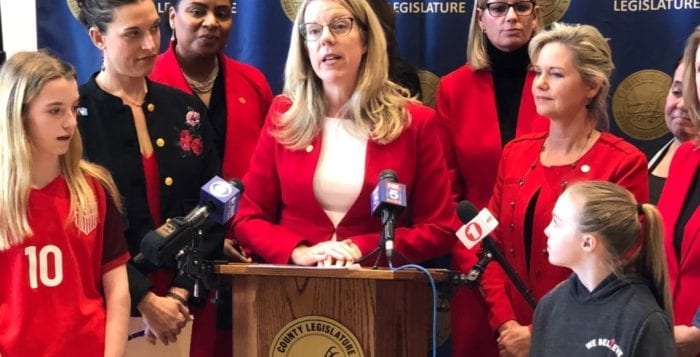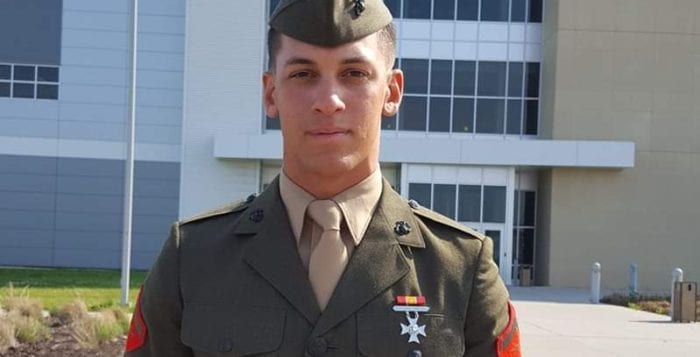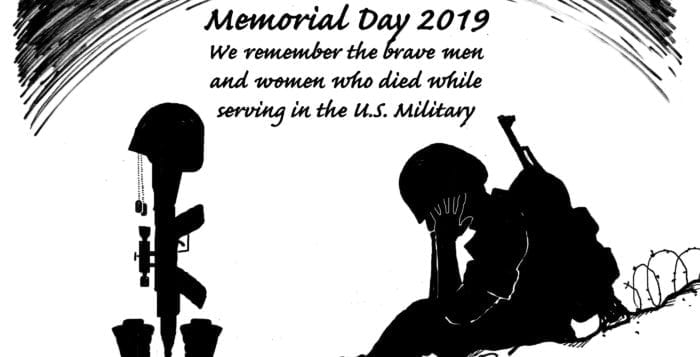Long Islanders can be particularly proud on July 20, as Americans celebrate the 50th anniversary of the first human steps taken on the moon by Neil Armstrong and Buzz Aldrin. Many of the men and women who once worked at the Grumman Corporation in Bethpage, right here on Long Island, played a significant part in the project.
The aerospace engineering company, now known as Northrop Grumman Aerospace Systems, was integral in the design, assembly, integration and testing of the lunar module used in the Apollo 11 mission. In fact, by 1969 approximately 9,000 people, according to the Cradle of Aviation Museum in Garden City, were working on the project. This team included 3,000 engineers, scientists, mathematicians and supporting technical personnel.
We owe a lot to the men and women of Grumman who played a part in the Apollo 11 mission and all lunar landing missions that followed. One small step for man led to giant leaps in technology. Among the technological advances to emerge from the Apollo missions, according to NASA’s website, is the AID implantable automatic pulse generator. Using Apollo technology, it monitors the heart continuously, recognizes the onset of a heart attack and delivers a corrective electrical shock. Developed by the company Medrad, it consists of a microcomputer, a power source and two electrodes that sense heart activity. When medically necessary, the product is available as an implant today.
Many Grumman employees still live on Long Island, and when our editors started asking friends and social media connections if they knew anyone who worked on the moon mission, we were surprised at how easy it was to find these people who worked on the lunar module or LM. One editor sat on the board of a nonprofit with one of the people we feature in this edition, and she never knew he played a role in such a historic event.
During this milestone anniversary, we hope our readers will take the opportunity to ask around and find out if anyone knows a family member or friend who worked on the mission. Their stories are interesting, and, as they are now in their 70s and 80s, we hope their memories will be passed down to not only family and friends, but to everyone.
Imagine, just a little more than 50 years ago it was unfathomable that humans could put a person on the moon, but Americans did. The mission reminds us of what a group of people working in various fields can collectively accomplish. If we can put a man on the moon, maybe one day we’ll be able to figure out how to put an end to hunger even with a food surplus, cure cancer and convert our fuel economy to alternative, clean forms of energy.
Let’s remember that dreams do come true. What once seemed impossible was achieved. The spirit that captured our country enabled men and women to work together towards a common goal.
With a common belief in ourselves as Americans, such a thing can happen again.





 The Legislature recently decided to do something about the injustice by creating a local law, called the RISE (Restrict Information Regarding Salary and Earnings) Act, to restrict divulging earnings history during the interview process. County Executive Steve Bellone (D) signed the legislation into law in November.
The Legislature recently decided to do something about the injustice by creating a local law, called the RISE (Restrict Information Regarding Salary and Earnings) Act, to restrict divulging earnings history during the interview process. County Executive Steve Bellone (D) signed the legislation into law in November.








